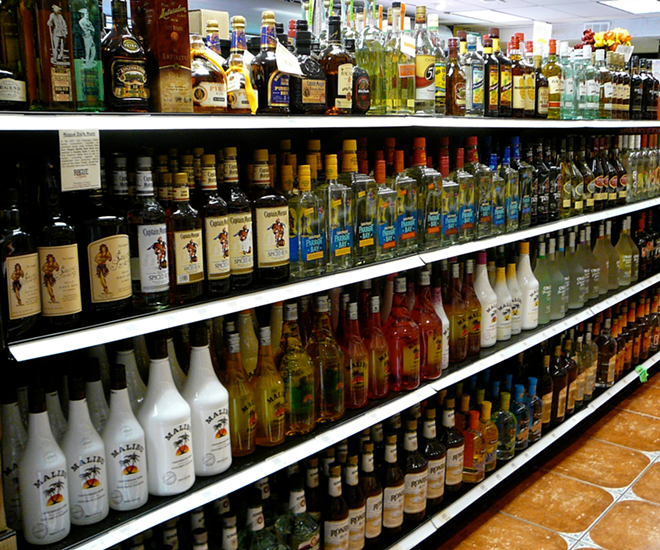As debate rages over President Trump’s proposed wall between the United States and Mexico, some Florida business owners are attempting to tear down a wall of their own.
Dubbed the “liquor wall,” current Florida law requires liquor stores to be separated from grocery and other retail stores by a physical wall and a separate entrance from outside of the establishment.
Abolishing the liquor wall would allow grocery and retail stores to sell liquor next to wine and beer and liquor stores to expand their produce sales.
Senate Bill 106, also known as "whiskey and Wheaties," sponsored by State Senator Anitere Flores, R-Miami, passed the Senate Regulated Industries Committee last month by a 9-1 vote, and is headed to the Rules Committee before a final floor vote.
Although the bill enjoys widespread support, there are opposing views.
The bill's opponents, Florida Businesses Unite and the Florida Independent Spirits Association, argue that allowing liquor sales in stores like Target will lead to an increase in crime and underage drinking.
Charles Bailes III, chairman and CEO of ABC Fine Wine & Spirits—a chain that could stand to lose if grocers are able to sell liquor, believes the 80-year-old state law requiring separate and distinct retail spaces has helped keep children safe from the effects of underage drinking.
“This is a well-established Florida law that requires distilled spirits to be sold in a separate location from groceries. There has never been an outcry from the public about it because customers do not make a big deal out of walking a few extra feet to get from one store to the one that sells liquor next door. The outcry would understandably come from parents if the Legislature gets rid of a law that protects minors,” Bailes wrote in opinion section of the Sun Sentinel.
Those in support of the bill argue that times have changed since the Prohibition Era and it’s time for the law reflect those changes.
The counterpoint to Bailes’ argument is that many grocery stores already have licenses to sell beer and wine, so the responsibilities relative to “alcohol” are already understood and met. Technology automatically prompting cashiers to enter a customer’s date of birth has also enhanced a retailers' capability to meet regulatory compliance responsibilities.
As of now 28 states, plus the District of Columbia, allow for the sale of beer, wine and distilled spirits by grocery stores without a “wall.” Evidence of increased theft and underage drinking has not been established in these states.


